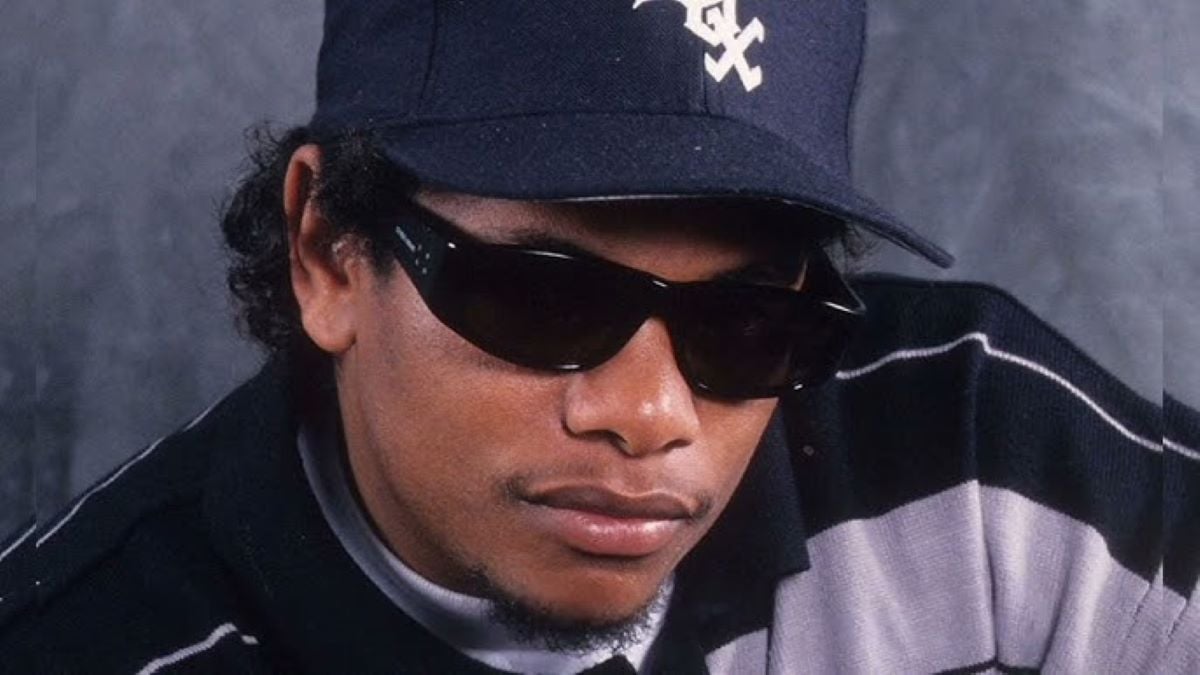Three decades ago, the world mourned the passing of an icon whose influence is still felt till this very day. Eazy-E’s name alone conjured up memories of West Coast hip-hop’s golden era and glory.
As a pioneer, an unapologetic voice of the streets, and the man who helped put hip-hop on the map, Eazy-E captured the gritty realities of life with his raw and unapologetic music. At the time of Eazy-E’s death, he was only 31 years old and at the height of his solo career.
A few weeks ago, a deeply emotional moment unfolded for his daughter, Henree also known as ReeMarkable. On what would have been Eazy-E’s 60th birthday, she gave birth to her child, marking a beautiful, full-circle moment in her life. The birth of her child on such a significant day now connects the family’s present with the legacy of the past; A past which is still shrouded in mystery, conspiracy theories, and whispers of the dark corners of the music industry.
Eazy-E: The life of a West Coast icon
Born Eric Lynn Wright on Sept. 7, 1964, in Compton, Eazy-E grew up in one of the most notorious neighborhoods in Los Angeles. Before he found fame in music, Eazy-E was entrenched in street life, allegedly earning money through drug dealing. But as he began to realize the potential of rap music and after the death of his cousin in a drug related scuffle, he shifted his focus to the studio. In the mid-1980s, he co-founded Ruthless Records with music manager Jerry Heller, which would set the stage for his rise to fame.
In 1986, Eazy-E, along with Dr. Dre, Ice Cube, MC Ren, and DJ Yella, formed the legendary group N.W.A. Their debut album Straight Outta Compton shook the world, giving a voice to the streets of Los Angeles with tracks like “F**k the Police.” Eazy-E quickly became a prominent figure in the music world, known for his incendiary pushing lyrics.
While N.W.A. became one of the most controversial and successful rap groups of the time, tensions within the group led to its eventual breakup. Ice Cube left in 1989, and by 1991, Eazy-E was in a heated feud with Dr. Dre, resulting in infamous diss tracks. Nonetheless, even with internal conflicts, Eazy-E’s solo career thrived, and his role as a businessman grew. Releasing his hit album Eazy-Duz-It in 1988 and signing successful acts like Bone Thugs-N-Harmony, helped solidify his position as a mogul in the industry.
How Eazy-E died: The end of an icon
Amidst the fame and success, Eazy-E’s health began to decline rapidly in early 1995. Many initially believed that the rapper was suffering from asthma, a condition he had dealt with throughout his life. However, things took a dramatic turn when he was admitted to Cedars-Sinai Medical Center in Los Angeles in February of that year. Just a few weeks later, on March 16, 1995, Eazy-E shocked the world by releasing a public statement through his friend Ron Sweeney confirming that he had been diagnosed with AIDS.
His openness about the diagnosis was significant, particularly in the mid-90s, when the AIDS epidemic was still heavily stigmatized, especially in the Black community and the world of hip-hop. Eazy-E’s admission was one of the first times a major rapper had publicly confronted the issue. Despite this moment of transparency, Eazy-E’s condition still deteriorated rapidly.
Just nine days after revealing his diagnosis, Eazy-E passed away on March 26, 1995. Official reports confirmed that complications from AIDS had ravaged his immune system by the time of his diagnosis and that it was pneumonia complications that dealt the final blow. The world mourned the icon’s passing and he was buried on April 7 at Rose Hills Memorial Park in Whittier California.
The mysteries that followed
However, even with the official medical explanation, doubts and theories about Eazy-E’s death have persisted. The most prominent conspiracy theory revolves around Suge Knight, the former CEO of Death Row Records. Knight had a notorious reputation in the world of hip-hop, and in a 2003 interview on Jimmy Kimmel Live, he made a chilling joke about injecting people with AIDS as a form of murder. Though the comment was said in a seemingly lighthearted manner, it added fuel to existing rumors that Eazy-E’s death was orchestrated by him.
Nonetheless, in 2023, Ice Cube appeared on Logan Paul’s Impaulsive podcast to dispel such rumors. To avoid being accused of protecting Knight, the rapper declared unequivocally that he was closer to Eazy-E before his death, and that no such narrative came up during any of his conversations with the late rapper. Other theories remain to this day, ranging from retributions to commercial conflicts, but nothing has been confirmed other than the official reports as stated by the doctors who treated him.
Now, 29 years after his passing, Eazy-E’s legacy remains strong. In recent years, N.W.A. reunited to pay tribute to their fallen brother, performing some of their greatest hits and honoring his memory during Coachella. The impact of his work still resonates today, with stars like Kendrick Lamar also paying homage to Eazy-E’s influence on West Coast rap. Other artists, including YG and The Game have acknowledged how Eazy-E’s raw, fearless style paved the way for future generations. His contribution to music continues to shape the genre, proving that Eazy-E’s presence is still felt, long after his untimely death.
